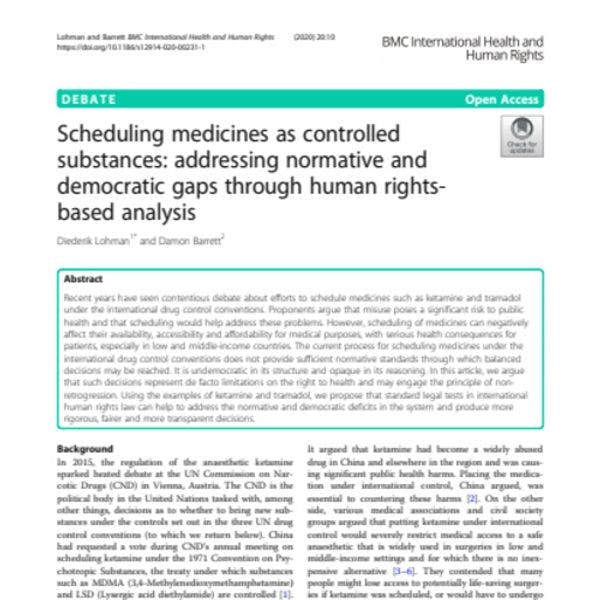Classification des médicaments sous contrôle international : répondre aux lacunes normatives et démocratiques par une analyse basée sur les droits humains
Lohman et Barrett suggèrent un examen de la légalité, de l’efficacité et de la proportionnalité fondé sur les droits humains pour combler les lacunes du système actuel. Pour en savoir plus, en anglais, veuillez lire les informations ci-dessous.
By Diederik Lohman & Damon Barrett / BMC International Health and Human Rights
Abstract
Recent years have seen contentious debate about efforts to schedule medicines such as ketamine and tramadol under the international drug control conventions. Proponents argue that misuse poses a significant risk to public health and that scheduling would help address these problems. However, scheduling of medicines can negatively affect their availability, accessibility and affordability for medical purposes, with serious health consequences for patients, especially in low and middle-income countries. The current process for scheduling medicines under the international drug control conventions does not provide sufficient normative standards through which balanced decisions may be reached. It is undemocratic in its structure and opaque in its reasoning. In this article, we argue that such decisions represent de facto limitations on the right to health and may engage the principle of non-retrogression. Using the examples of ketamine and tramadol, we propose that standard legal tests in international human rights law can help to address the normative and democratic deficits in the system and produce more rigorous, fairer and more transparent decisions.
Téléchargements
Sujets
Régions
Profils associés
- World Health Organization (WHO)
- Commission on Narcotic Drugs
- Diederik Lohman
- Damon Barrett
